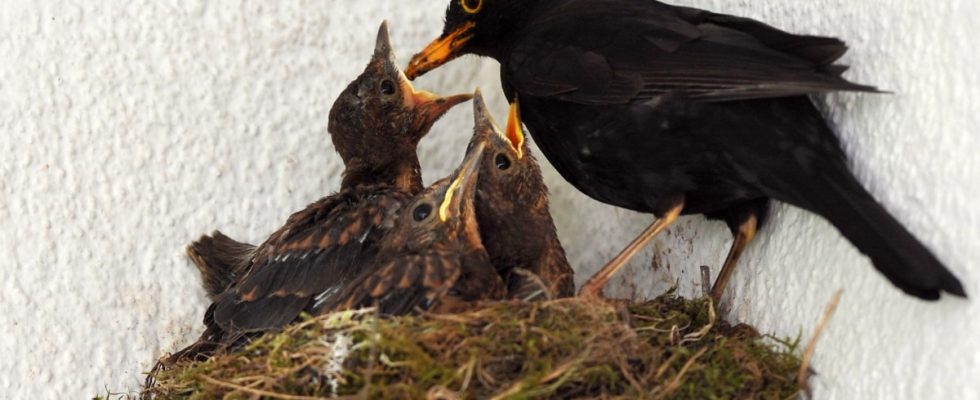A move is always a challenge, especially when the usual living space changes. Imagine if people had to go back up into the trees! On the other hand, many birds leave the trees or at least the forests to nest in narrow urban parks or even on balconies. And they have limited living space. Accordingly, they become more aggressive outwards to defend their new territories, which ornithologists have already observed in several immigrated species. But what are the consequences for the inner nest community? A team led by Samuel Lane from North Dakota State University studied this behavior in song sparrows, a songbird species widespread in North America. The team reports now in the specialist magazine Frontiers in Ecology and Evolution unexpected results.
“Previously, we thought that male songbirds in temperate latitudes reduce their parental care when they become more aggressive,” said Lane, the study’s author. “But in our study, we show that urban male song sparrows take care of their young even more.” Contrary to the researchers’ expectations, the birds flew to their nests more frequently. And they were more successful parents than their rural relatives.
Is the time invested in defense missing in brood care? Obviously not.
It is a surprising finding, after all, the songbirds have to prove themselves in a new environment, they have to invest more time and energy, at least so far, in defending their territories. These are resources that could be lacking in the rearing of the offspring.
But the team’s field studies at six locations in Virginia, conducted over four breeding seasons, came to different conclusions. The urban males therefore visited the nests more frequently than their peers living in rural areas, fed the nestlings earlier in the evening and generally spent more time on brood care, such as defending against parasites. “It turned out that the urban males are supermales, capable of defending their territory and caring for the young.”
The researchers warn against prematurely applying their results to other bird and animal species. Nonetheless, they encourage people to think more about the benefits of urban spaces for wild animals. “Our study adds to the growing understanding that some songbirds actually benefit from the urban environment when the green space there provides enough food and space.”

